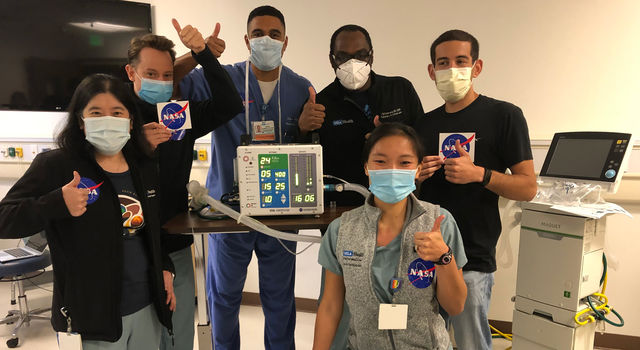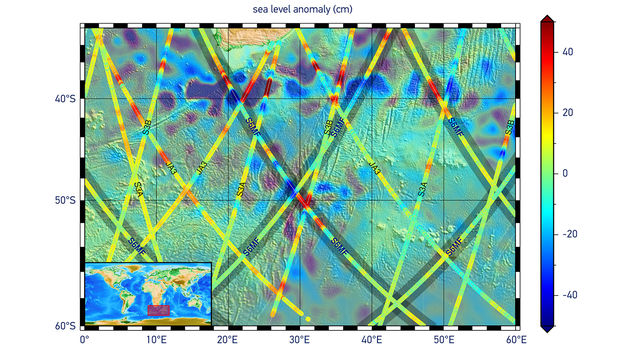Blogs | Earth Right Now | September 28, 2015
#OhMyGawd: You’re Gonna Lose It When you Hear About Oceans Melting Greenland
This morning when I told someone I’d interviewed NASA oceanographer Josh Willis for this blog, they replied, “Isn’t Josh Willis a climatologist?”
“Aha!” I said. “That’s a problem. Not knowing that Earth’s ocean is responsible for controlling the climate is major. Oceanographers are climatologists.”
I mean, look, the ocean covers 71 percent of the planet’s surface, and 71 percent is like, duh, a lot. The ocean, in fact, is so important that a better name for our planet would have been “Ocean” rather than “Earth” — even though our species spends most of its time on boring old land. #sorrynotsorry, geologists.
And you might not realize this because it’s so familiar, but water is crazy. It has this unusual property, called “high heat capacity,” that gives it the ability to hold a stable temperature. It resists heating and cooling. Water will absorb a lot of energy before it changes temperature even a little bit.
And this property of water, this high heat capacity, is what makes life on our planet possible. It’s also what controls and moderates our climate, which is why our ocean, more than our atmosphere, is responsible for creating a stable climate on Earth.
So this is the reason oceanographers are climatologists. It’s also part of the reason Willis chose to name his new science project Oceans Melting Greenland (OMG). He hopes that people everywhere will recognize the role Earth’s ocean plays in controlling the climate and to say to the world, “Hey! The ocean is eating away at the ice sheet! The ocean is playing a huge role in melting the glaciers; it's melting Greenland!”
Remember I just told you water absorbs a lot of energy before it heats up? Well, humans have added so much energy to the Earth system by burning fossil fuels that we have heated the ocean. And now that we’ve warmed it up, you guessed it: The water is in no hurry to change back, so we’re going to be stuck with this warmer water for a very long time. And, says Willis, “Since Greenland is one of the last two remaining ice sheets on the planet, its fate is intertwined with how much destruction we’re going to have with climate change.” If you just said “OMG,” you would be right.
But if you think scientists know everything there is to know about the ocean, you would be very wrong. Willis and his team want to find out more about the complicated geometry (the shape and depth of the seafloor) around Greenland to understand the interaction between the water and ice so that we can find out how fast the glaciers are melting.

This summer OMG used a ship, M/V Cape Race, to sail right up the narrow fjords on the continental shelf surrounding Greenland to the places where the 4- to 5-degree Atlantic Ocean water meets the bottoms of the frozen zero degree glaciers. The Cape Race used a multibeam echo sounder to map undersea canyons where the warm seawater comes in contact with and melts the glaciers. Willis followed the ship’s path via smartphone, sitting up in his PJs at two o’clock in the morning and uttering a variety of exclamations, including “OMG, turn left, left!”
Next year, the Cape Race will continue to make its way around Greenland, mapping the depth of the seafloor near the fjords, while Willis joins his team in the field flying on NASA’s G-III plane.
“OMG is a big picture project,” he told me. ”We want to see what’s happening in the ocean on the large scale and what’s happening to the ice sheet on the largest scales.”
In the spring, the NASA aircraft, with Willis aboard, will measure how much Greenland glaciers are thinning using the Glacier and Ice Surface Topography Interferometer (GLISTIN-A) instrument. They plan to deploy temperature and salinity probes in the summer. “In most of these places, there’s been no temperature and salinity data collected,” Willis said pausing, “ever.” Over the next five years, they will continue to monitor the ice sheet, asking, “When the water is this warm, how much ice melts?”
Willis knows “OMG” is a campy name for a NASA mission that makes light of a serious subject. “It’s easier to accept something as a reality when you can laugh at it, and accepting reality is a step towards making a change,” he said, explaining that if he was bummed out about climate change all the time, he would be stuck. “Humor makes it tolerable.”
Hopefully, when you find out about Oceans Melting Greenland, you’ll respond in the only way that’s appropriate: “OMG!”
Find out more about Oceans Melting Greenland here, here and here.
View an infographic about the mission.
Thank you for reading, sharing and commenting.
Laura
› Visit Earth Right Now to comment on this post
TAGS:EARTH, ICE, GREENLAND, OCEAN, CLIMATE CHANGE







